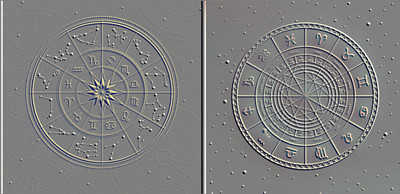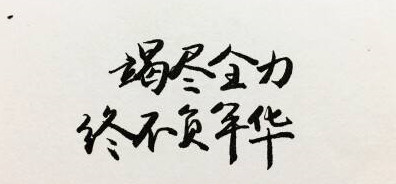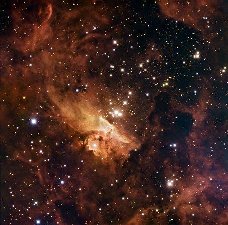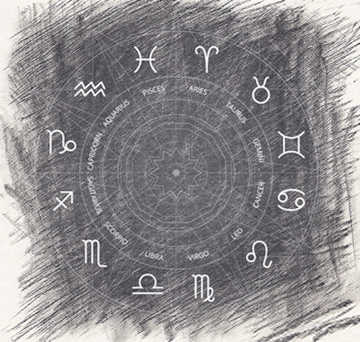 摘要:
英语句子,越短越好,100个100分,要中文翻译越短越好的英语句子:1.Thisisaship.(这是一艘船.)2.Heisanoldworker.(他是一个老工人.)3.Ihav...
摘要:
英语句子,越短越好,100个100分,要中文翻译越短越好的英语句子:1.Thisisaship.(这是一艘船.)2.Heisanoldworker.(他是一个老工人.)3.Ihav... 英语句子,越短越好,100个100分,要中文翻译
越短越好的英语句子:
1. This is a ship.(这是一艘船.)
2. He is an old worker.(他是一个老工人.)
3. I have a brother and a sister.(我有一个兄弟和一个姐妹.)
4. There is a map on the wall.(墙上有一幅地图.)
5. This is a yellow pencil.(这是一支黄铅笔.)
6. Tom is an American boy.(Tom是个美国男孩.)
7. English is a useful tool.(英语是一种有用的工具.)
8. He is telling them an interesting story.(他正在给大家讲一个有趣的故事.)
9. Britain is a European country.(不列颠是一个欧洲国家.)
10. It takes an hour and a half to get there.(这要花费一小时半到达那里.)
11. It is a pig.(它是一头猪.)
12. It is cotton.(它是棉花.)
13. It is wheat.(它是麦子.)
14. It is a cow.(它是一头母牛.)
15. It is an orange.(它是一只橘子.)
16. It is rice.(它是稻子.)
17. It is an ox.(它是一头公牛.)
18. It is a duck.(它是一只鸭子.)
19. It is water.(它是水)
20. It is a hen.(它是一只母牛.)
21. Today is Monday. Tomorrow is Tuesday.(今天是星期一.明天是星期二.)
22. Today is Wednesday. Tomorrow is Thursday.(今天是星期三.明天是星期四.)
23. Today is Friday. Tomorrow is Saturday.(今天是星期五.明天是星期六.)
24. Today is Saturday. Tomorrow is Sunday.(今天是星期六.明天是星期日.)
25. Today is Sunday. Tomorrow is Monday.(今天是星期日.明天是星期一.)
We are workers.(我们是工人.)
26. My sister and I are both pupils.(我的姐妹和我都是学生.)
27. You are all middle school pupils.(你们都是中学生.)
28. They are trees and flowers.(它们是树和花.)
29. Cats
and dogs are animals.(猫和狗是动物.)
30. All of them are teachers.(他们都是教师.)
31. The sun is red.(太阳是红色的.)
32. That table is heavy.(那张桌子很重.)
33. I am sixteen.(我十六岁.)
34. Class is over.(课结束了.)
35. The river is faraway.(这条河很远.)
36. Time is up.(时间到了.)
37. The bottle is full of water.(这瓶子装满了水.)
38. I am from Shanghai.(我来自上海.)
39. Comrade Wang is out.(王同志外出了.)
40. The football match is on.(足球比赛开始了.)
41. The boy is over there.(那男孩在那边.)
42. My brother is at home.(我的兄弟在家里.)
43. He is not here.(他不在这里.)
44. She is good at swimming.(她擅长游泳.)
45. I am fond of sports.(我很喜欢运动.)
46. I am tired.(我很累.)
47. You are ill.(你病了.)
48. It is hot today.(今天很热.)
49. The weather is cold.(天气很冷.)
50. It is fine.(这个很好.)
51. The play is good.(这场演出很好.)
52. Snow is white.(雪是白的.)
53. The streets are clean.(街道是干净的.)
54. This hall is full of people.(这个大厅挤满了人.)
55. The library is open.(图书馆开门了.)
56. The film is on.(影片上映了.)
57. My uncle is over there.(我的叔叔在那边.)
58. The cinema is far away.(电影院很远.)
59. The light is off.(灯暗了.)
60. My father is out.(我的父亲外出了.)
61. Her brother is thirteen.(她的兄弟十三岁.)
62. I am eighteen.(我十八岁.)
63. Mr. Smith is from American.(史密斯先生来自美国.)
64. The boys in our class are fond of football.(我们班的男孩很喜欢足球.)
65. Wang Ying is good at music.(王英擅长音乐.)
66.I have a brother.(我有一个兄弟.)
67. He has two English books.(他有两本英语书.)
68. We have a lot of paper.(我们有许多纸.)
69. You have many friends.(你有许多朋友.)
70. My sister has a pen and a ball-pen.(我的姐妹有一支铅笔和一支圆珠笔.)
71. Her classmates have a small library.(她的同班同学们有一个小图书馆.)
72. Our school has twenty classes.(我们的学校有二十个班级.)
73. I have some bread and jam.(我有一些面包和果酱.)
74.There is a teacher's desk in the classroom.(教室里有一只讲台.)
75. There are forty pupils in the playground.(203场上有四十个学生.)
76. There are some desks and chairs in the office.(办公室里有一些书桌和椅子.)
77. There are two blackboards on the wall.(墙上有两块黑板.)
78. There are four lights in the classroom.(教室里有四盏灯.)
79. There is a loud-speaker in the hall.(大厅里有一只喇叭.)
80. There are two portraits above the blackboard.(黑板上方有两张像.)
81. There is a map and two pictures in the reading-room.(阅览室里有一幅地图和两幅画.)
82.Your pencil is blue. Mine is blue, too.(你的铅笔是蓝色的.我的也是蓝色的.)
83. His book is new. Hers is new, too.(他的书是新的.她的也是新的.)
84. Our classroom is big. Theirs is big, too.(我们的教室很大.他们的也很大.)
85. Her brother is a worker. His is a worker, too.(她的兄弟是一个工人.他的也是一个工人.)
86. Their house is near the park. Ours is near the park, too.(他们的房子在公园附近.我们的也在公园附近.)
87. His room is tidy. Yours is tidy, too.(他的房间很整洁.你的也很整洁.)
88. My sister is not here. Hers is not here, either.(我的妹妹不在这里.她的也不在这里.)
89. Our classroom is not on the first floor. Theirs is not on the first floor, either.(我们的教室不在二楼.他们的也不在二楼.)
90. Your father is not a teacher. Mine is not a teacher, either.(你的父亲不是一个教师.我的也不是一个教师.)
91. Their library is not big. Ours is not big, either.(他们的图书馆不大.我们的也不大.)
92. How nice the song is!(这首歌多么好听啊!)
93. What a wonderful time we're had!(我们过了一段多么美好的时光啊!)
94. How fast the dog runs!(这只狗跑得多么快啊!)
95. What a clever boy he is!(他是一个多么机灵的男孩啊!)
96. What beautiful music they're playing!(他们正在演奏多么优美的音乐啊!)
97. How quickly time flies!(时间飞逝得多么快啊!)
98. What an excellent idea you're got!(你有一个多么出色的主意啊!)
99. What a dear little child he is!(他是一个多么可爱的小孩啊!)
100. He is telling us an interesting story.(他正在给我们讲一个有趣的故事.)
101. We are having a holiday today.(今天我们正在度假.)
102. What are you doing these days?(这几天你正在做什么?)
103. You are speaking so quickly, I can't understand you.(你这么快地讲着,我没能搞懂你.)
104. Jane's studying in our school this term. She is preparing her lessons now.(这学期珍妮在我们学校学习.她现在正在准备功课.)
105. Can I use your dictionary for a moment? I'm sorry, but I am using it now.(我能用一下你的词典吗?很抱歉,我现在正在用.)
106. They are doing their best to finish the work in time.(他们正在努力及时完成这项工作.)
107. She is speaking.(她正在讲话.)
108. The children are singing.(孩子们正在唱歌.)
109. I am listening to the radio.(我正在听无线电.)
110. My brother is writing.(我兄弟正在写字.)
111. We are preparing our lesson.(我们正在准备功课.)
112. Our teachers are having a meeting.(我们的老师正在开会.)
113. The dog is running very fast.(狗正在非常快地跑着.)
114. Your sister is looking for her pen.(你的姐妹正在找她的钢笔.)
115. see a map on the wall.(我看见墙上的一张地图.)
116. My father works in a factory.(我的父亲在工厂工作.)
117. The pupils often play games in the playground.(学生们经常在203场上玩游戏.)
118. Tom and his sister often clean the room together in the morning.(汤姆和他的妹妹经常在早晨打扫房间.)
119. She studies politics, Chinese and other subjects.(她学习政治、语文和其他课目.)
120. The boys pass by the bookstore every day on their way to school.(孩子们每天在上学路上经过书店.)
121. My brother and I wash our clothes every day.(我兄弟和我每天洗我们的衣服.)
122. Our parents usually go to work at seven.(我们的父母通常在七点钟去上班.)
123. Birds fly south in winter.(鸟在冬天飞往南方)
124. Mary lives in New York.(玛丽住在纽约.)
125. We always get up early.(我们总是起床很早.)
126. He usually goes to bed at nine.(他通常九点上床.)
127. It often rains in spring.(天天常常下雨.)
128. I sometimes go to the park.(我有时去公园.)
129. She seldom comes late.(她不常迟到.)
130. Li-li never tells a lie.(丽丽从不撒谎.)
131. I often go to the cinema.(我常常去电影院.)
132. He seldom forgets to do his homework.(他不常忘记做回家作业.)
133. The boy usually goes to school at 7.30.(那男孩通常七点半去上学.)
134. She never talks to her teacher that way.(她从不以那种方式跟老师谈话.)
135. He usually studies in the reading-room.(他通常在阅览室里学习.)
136. We always listen to the radio at 8.00 p. m.(我们总是在上午八点听无线电.)
137. John sometimes watches television in the evening.(约翰有时在晚上看电视.)
138. Wang Fang never comes to school late.(王芳来上学从不迟到.)
139. They are always busy.(他们总是很忙.)
140. I don't usually take a bath at noon.(我通常不在中午洗澡.)
141. Do you often work so late?(你常常工作得这么晚吗?)
142. This is sometimes true.(这有时是真实的.)
143. We can seldom do it without his help.(没有他的帮助,我们很少能做到.)
144. It is not going to be cold next month.(下个月不会马上很冷.)
145. He is always ready to help people.(他总是助人为乐.)
146. You must never do it again.(你千万不能再做这件事.)
147. She is seldom late for school.(她上学不常迟到.)
148. Do you often read the newspaper after supper.(你常常在晚饭后看报吗?)
149. Tom doesn't usually wake up so early.(汤姆通常不醒得这么早.)
150. Mary can sometimes choose the right thing.(玛丽有时会选择正确的事情.)
151. Does he usually have breakfast at six?(他通常在六点钟吃早饭吗?)
152. The boys are seldom absent from school.(男生们不常缺课.)
153.Now I am reading the newspaper.(现在我正在看报纸.)
154. We are not going to play basket-ball after school.(我们不打算放学后打篮球.)
155. The workers are building a big ship these days.(这几天工人们正在造一条大船.)
156. The pupils are visiting a photo show now.(学生们现在正在参观摄影展览.)
157. We often play basket-ball with Class Three.(我们常常与三班打篮球.)
158. Wang Ling does a lot of housework every evening, but today he is helping his brother with his lessons.(王林每天晚上做许多家务,但今天正在帮助弟弟温习功课.)
159. I am going to study French next year.(我打算明年学法语.)
160. I am going to read the book this morning.(我打算今晚看这本书.)
161. She is going to help her classmate later.(她打算最近帮助她的同学.)
162. It is going to snow very soon.(过不了多久就要下雪了.)
163. We are going to go to Peking the day after tomorrow.(我们打算后天去北京.)
164. You are going to be middle school pupils next autumn.(你们明年秋季就要成为中学生了.)
165. They are going to visit the museum next week.(他们准备下星期参观博物馆.)
166. They are not going to stay here.(他们不打算住在那里.)
167. She is not going to mend her shoes.(她不打算补自己的鞋.)
168. You are not going to have an English lesson tomorrow.(你们没计划明天上英语课.)
169. I am not going to watch TV today.(我不打算今天看电视.)
170. You are not going to see the film next Sunday.(你们不打算下星期天看这部电影.)
171. He is not going to write to his father tonight.(他不打算今晚写信给他父亲.)
172. I shall be at middle school next year.(明年我将要读中学.)
173. You will hear the news tonight.(今夜你将会听到这条消息.)
174. He will tell it to you the day after tomorrow.(他将会在后天把这件事告诉你.)
175. She will play volley ball after school.(放学后她要打排球.)
176. It will be cold tomorrow.(明天要冷了.)
177. The baby will be able to walk soon.(这婴儿不久就能走路了.)
178. We shan't be middle school pupils next year.(我们不会在明年成为中学生的.)
179. She won't read the book this evening.(她今晚不会看这本书.)
180. They won't see the film this week.(他们这星期不会去看这部电影.)
181. You won't hear from him tonight.(你不会在今夜收到他的信.)
182. I shan't be sixteen until early next month.(我到下个月月初才十六岁.)
183. They won't be able to come this evening.(他们今晚不能够来了.)
184. There will be a football match next Sunday.(下星期天将有一场足球赛.)
185. There will be more new machines in the workshop.(车间里将有更多的新机器.)
186. There won't be any rain next few days.(过几天不会下雨.)
187. There will be several new film on next season.(下个季度会有几部新影片.)
188. We don't go to school on Sunday.(我们星期天不上学.)
189. He does his homework in the evening.(他在晚上做回家作业.)
190. I first met him on a spring evening.(春天的一个晚上我第一次遇见他.)
191. My sister usually gets up at six o'clock.(我姐姐通常在六点钟起床.)
192. Her father lived in Tientsin at that time.(那时他父亲住在天津.)
193. We have dinner at a quarter to twelve.(我们十一点三刻吃饭.)
194. I left for Peking on September 11.(我是九月十一日赴北京的.)
195. Chang Hua is going to stay here next month.(张华打算下个月在这儿呆着.)
196. We are learning Lesson Ten this week.(这星期我们正在学第十课.)
197. She often works at night.(她常常在夜里工作.)
198. She worked late last night.(她昨夜工作得很晚.)
199. They went to the park the day before yesterday.(前天他们去过公园.)
200. It will be very hot next month.(下个月将会很热.)
100个给100分,300个给300分,200个为何只有150分?开玩笑的.只要能帮到你,给个5分就行了.
高中英语短语及例句(带中文翻译)
1. be afraid of 害怕某事 I'm afraid of walking alone in the darkness.
2. agree to do sth. 同意做某事. I agree to help him work over the problem.
3. not…at all 一点也不 I do not like him at all.
4. one after another 一个接一个 Summer holiday is coming, children jump into the pool one after another.
5. at last 最终 he gives up his opinion at last.
6. at once 马上 He breaks his promise at once.
7. at the same time 同时 we cannot do housework and swimming at the same time.
8. at work 上班My mom is at work at the present.
9. be away from 远离 Hangzhou is 300km away from Ningbo.
10. go away 走开 She goes away to take the milk.
11. make the bed 整床 We should make the bed everyday after we get up.
12. do one's best 尽力做. We should do our best to make our country much more beautiful.
13. be busy with 忙于 She is busy with her homework.
14. be busy doing sth 忙于 She is busy doing her homework.
15. by bus /car / plane 乘公交车/轿车/飞机 We always travel by bus/car/plane.
16. catch up with 跟上 We should work hard to catch up with the high pace of our society.
17. catch cold 感冒 I caught cold yesterday.
18. day after day 一天天 Our city becomes more and more beautiful day after day.
19. do some cleaning 做清洁工作 I usually do some cleaning on Sunday.
20. eat up / use up 吃光/用光 She eats up all the food. He uses up all the paper.
21. in the end 最后 He went down on his knee in the end.
22. fall ill 生病了 In spring, it is quite easy to fall ill.
23. on foot 走路 I go to school on foot.
24. make friends with sb. 与某人做朋友 They make friends with each other.
25. in front of 在前面 In front of the man, there is a dog.
英语句子摘抄及翻译
给你摘了一些,你每个抄15个就好
被动态
例:1、主动:The children gave the foreign guests a warm welcome.
被动:The foreign guests were given a warm welcome by the children.
孩子们热烈地欢迎外宾.
2、主动:People regard him as brilliant.
被动:He is regarded as brilliant by people.
人们认为他很有才华.
以上两例都是一般时态用be done的例子,be有人称、时、数变,第三人称foreign friends是复数,时态一般过去时,所以"be done"就是were given,而People regard him as brilliant一句,被动后的"be done"就变成单数第三人称is regarded的形式了.
被动:
This speech was delivered by comrade Wang. (was delivered即一般过去时的被动态)
这篇讲演是王的发言.
There was a serious train accident near the border. Two people were killed and twelve were injured.
边境发生严重列车事故,二人死亡,十二人受伤.
A person who is truly honest is called a straight arrow. 直言不讳的人才是真正诚实的人.
A note was passed up to the speaker. 有人给讲演者递上来一张纸条.
John was elected president of the class instead of Harry. 乔治被选为班长而代替了亨利.
The information is urgently needed. 急需这个资料.
完成时态have done,被动将been加中间.
(过去完成时had done也包括在内).
例:1、主动:We have studied English for 3 years off and on at the spare-time school.
被动:English has been studied for 3 by us years off and on at the spare-time school. (have随新主语变为has)
我们已经在夜校里断断续续地学了三年英语了.
2、主动: They had produced 100 tractors by the end of last year.
被动: 100 tractors had been produced by the end of last year.
到去年年底我们已生产出一百台拖拉机.
3、主动:They have set up a power station in their home town.
被动:A power station has been set up in their home town.
他们的家乡建立了一座发电站.
4、主动:They have warned us to be careful of rats.
被动:We have been warned to be careful of rats.
他们已提醒我们要注意老鼠.
5、主动:People have piled plastic bags full of rubbish in streets.
被动: Plastic bags full of rubbish have been piled in streets.
人们把装满垃圾的塑料袋子堆放在街上.
6、主动:We have used nuclear energy to produce electricity.
被动:Nuclear energy has been used to produce electricity.
核能已用来发电.
7、主动:No one has ever beaten him at tennis.
被动:He has never been beaten at tennis.
就网球来说还没有人是他的对手.
(No one涉及到全否定和部分否定问题,见否定一讲)
The subjects of these lectures have been announced by the lecture committee.
演讲委员会已宣布了这些讲演的题目.
过去完成时也是一样:
主动: Somebody had cleaned my shoes.
被动: My shoes had been cleaned by somebody.
有人早已把我的鞋子擦了.
他们将问你许多怪题.
被动句中的by引出的宾语,一般说来,如果是人称代词你、我、他等,均可省略,someone no one不由by来引出.如果是名词不能省略,但当今英语也都可省略了.
主动:The Chinese people will make more space explorations in the future.
被动:More space explorations will be made in the future by the Chinese people.
中国人民在将来将进行更多的空间探索.
同样
After a period of use, the batteries should be changed. 电池使用一段时间后,应该更换.
Usually, the electricity is on for 24 hours. But tomorrow it will be cut off in the day time. 通常是昼夜供电,明天白天将停电.
More peaceful uses will be found for nuclear explosives in the future. 在将来会发现更多的和平利用核爆炸的途径.
More hard work will be needed to make this wonder come true in a short time from now.

从现在起要使这些奇迹在短时间内成为现实还需要做更多的艰苦工作.
make...come true 使……成为事实; come true做宾补(见感使动词口诀).
The machine will not be used again. 这机器不能再用了.
反义疑问句
一、There be 句型陈述句比较特殊, 其附加疑问句的结构为there be的倒装,而不带句子主语.例如:
There is something wrong with the computer, isn't there? 这台电脑有点毛病,是不是?
There aren't any fish in the river, are there? 这条河里没有鱼, 是吗?
二、当陈述部分的主语是everyone,everybody, someone, nobody, no one,none, anyone, somebody等合成不定代词时, 在非正式文体中,附加疑问句中的主语通常用he或they.例如:
Someone opened the door, didn't he/they? 有人开了门,是不是?
Nobody went to the cinema, did they? 没人去看电影,是吗?
三、当陈述部分的主语是everything, nothing, something, anything等合成词,附加疑问句中的主语用it.例如:
Nothing serious happened, did it? 什么事情也没有发生,对吗?
Everything is ready, isn't it? 一切准备就绪了,不是吗?
四、当陈述部分的谓语动词是am的肯定形式时,附加疑问句的谓语动词用aren't,而不用am not;当陈述部分的谓语动词为am not时,附加疑问句的谓语仍用am.例如:
I am five years younger than you, aren't I? 我比你小五岁,不是吗?
I am not late, am I? 我没有迟到,对吗?
五、当陈述部分带有few, little, hardly, scarcely, rarely, seldom, never, nowhere, nothing, no one, nobody等表示否定或半否定意义的词时,附加疑问句的动词用肯定形式.例如:
The old man can hardly read, can he? 这位老人不识字,对吗?
Little food has been left, has it? 吃的东西几乎没剩下,是吗?
He has few good friends, has he? 他几乎没有要好的朋友,是不是?
六、当陈述句部分带有否定前缀的词时,此陈述句当作肯定句, 其后的附加部分用否定形式.例如:
The students were impolite, weren't they? 那些学生没有礼貌,不是吗?
It's illegal to drive a car without a license, isn't it? 没有驾照开车是违章的,不是吗?
※ 含有否定含义的词在陈述部分作动词的宾语时,其反意疑问句用肯定结构,也可以用否定结构.例如:
You got nothing from him, did you? 你从他那儿什么也没得到,是吗?
七、如果陈述句是主从复合句而主句的谓语是动词I(we) + think, believe, suppose, imagine, reckon, fancy等词时,附加部分应与从句中的谓语在时态上保持一致.例如:
I suppose you are not serious, are you? 我想你不是当真吧,是吗?(不可用don't I?)
We think they have finished their homework, haven't they? 我们认为他们已经完成了家庭作业,不是吗?
I believe that you will enjoy the party, won't you? 我相信你会喜欢这次聚会的,不是吗?
八、当陈述部分是祈使句时,附加部分可以不与前面的祈使句的动词保持一致,而是根据不同的用意选用shall, will, can 等.例如:
Don't make noise, will you? 不要吵闹,行吗?
Let's help each other, will you/won't you? 让我们互相帮助,好吗?
Let me do it for you, will you/won't you? 让我来帮你做这件事,行吗?
Let us have a look at your new dictionary, will you/won't you? 让我们看一看你的新词典,好吗?
〔注〕Let's(包括说话者本人)开头的祈使句,附加部分常用shall we?或shan't we? 表示征求意见. Let us/me/him不包括听话人在内开头的祈使句,附加部分则要用will you?或won't you?
倒装句
A. 在疑问句中
各种疑问句一般地说都是倒装语序.例如:
Will they come to see us this weekend ? 这个周末他们将来看我们吗?
Are you talking about the film you saw last Monday ?
你们是在谈论你们上周一看的那部电影吗?
Can you speak another foreign language except English?
除开英语,你还能说另一种外语吗?
Where did you buy the dictionary, in the book store nearby or in Xinhua bookstore?
你在哪儿买的这本词典,是在附近的书店还是在新华书店?
She is not a student, isn't she ? 她不是个学生,对吗?
B. 在感叹句中
某些感叹句也用倒装语序.例如:
Isn't it a beautiful garden ! 多么美丽的花园啊!
What a beautiful garden it is ! 多么美丽的花园啊!(在这种句式中,主语在谓语之前,属于自然语序.对于主语和谓语而言,语序没有倒装.)
Have you ever seen such a naughty kid like him !
你见过那个孩子像他这么调皮!
C. 在陈述句中
陈述句在一般情况下用自然语序;但由于英语语法的某些原因,陈述句也要使用倒装语序.这些原因大致可以归纳如下:
1) 为了避免句子部分内容不必要的重复,常用"so + be动词(助动词、情态动词)+主语"或"neither / nor + be动词(助动词、情态动词)+主语"的倒装句式.其中第一个句式表示"与前面所述的肯定情况相同", 第二个句式表示"与前面所述的否定情况相同".例如:
His brother is a college student; so is mine.
他弟弟是大学生,我弟弟也是.
His brother is not a college student; nor is mine .
他弟弟不是大学生,我弟弟也不是.
He used to have his further study abroad; so did I.
他曾去国外深造过,我也去过.
He didn't use to have his further study abroad; neither did I.
他没去国外深造过,我也没有.
One of my friends can speak three foreign languages; so can his wife.
我的一个朋友会说三门外国语,他的妻子也会.
One of my friends cannot speak three foreign languages; neither can his wife .我的一个朋友不会说三门外国语,他的妻子也不会.
They are now preparing for their final examinations; so are we .
他们正在为期末考试作准备,我们也一样.
They are not now preparing for their final examinations; nor are we .
他们没在为期末考试作准备,我们也没有.
定语从句
四、定语从句中的主谓一致的问题
在定语从句中,当关系代词在定语从句中做主语时,谓语的数由先行词决定;当先行词为oneof+复数名词,定语从句中的谓语复数;当先行词为the(only,very,last)oneof+复数名词,谓语用单数.
①This is the last thing that interests me.
②That is one of the rooms that are free now.
③He is the only one of the students who is interested in sports.
五、当way做先行词时,后面跟的定语从句缺少状语时,关系词可以使用that,in which或者不加关系词
I didn't like the way that he eyed me.
I didn't like the way in which he eyed me.
I didn't like the way he eyed me.
六、在非正式文体中,在place,time,day,reason等词的后面的定语从句,即使定语从句缺少宾语,关系副词可以省略或者使用关系代词that.
This is the place (where/that) we met yesterday.
I shall never forget the day (when/that) we first met.
The reason (why/that) he came so early is his own affair.
Do you know the right time (when/that) the meeting begins?
七、which、whose引导定语从句在从句中做定语时,也能做介词宾语
It rained all night and all day,during which time the ship broke in pieces.
I called him by the wrong name,for which mistake I should apologize.
The prince was the person in whose honor the ball was given.
八、一般情况下,定语从句紧接先行词,但是有时为了保持句子的平衡,定语从句可以后置.
例如:The day will come when the people all over the world will win liberation.
when引导的定语从句修饰the day,但是主句the day will come太短,如果把后面的定语从句放在the day后面,主语太长,给人头重脚轻的感觉.
九、al,both,few,most,several,some,one,two…+of+whom/which等结构引导的定语从句为非限制性定语从句.
Her sons,both of whom work abroad,ring her up every week.
An angry crowd surrounded the buses,most of which were already full.
I bought a dozen eggs,six of which broke down when I dropped the box.
That building,which cost $5 million to build,has been empty for years.
十、有一些动词词组由"动词+名词"或"动词+名词+介词"构成,这种情况可以把名词提前,做定语从句的先行词.
例如:The great trouble he took to show us how to run the machine made him completely tired out.
take great trouble to do something是一个固定词组,先行词the great trouble后面的定语从句为he took to show us how to run the machine,made为主句的谓语动词.
十一、当定语从句中缺少表语时,使用关系代词that,既能指人也能指物,但
往往省略
Dr.Smith still talks like the man (that) he was ten years ago.
My typewriter is not the machine (that) it was.
十二、there be结构用做定语从句时,使用关系代词that,既能指人也能指物,但往往省略
The 9:15 is the fastest train (that) there is to Oxford.
Kent is supposed to be a gifted footballer (that) there has ever been.









